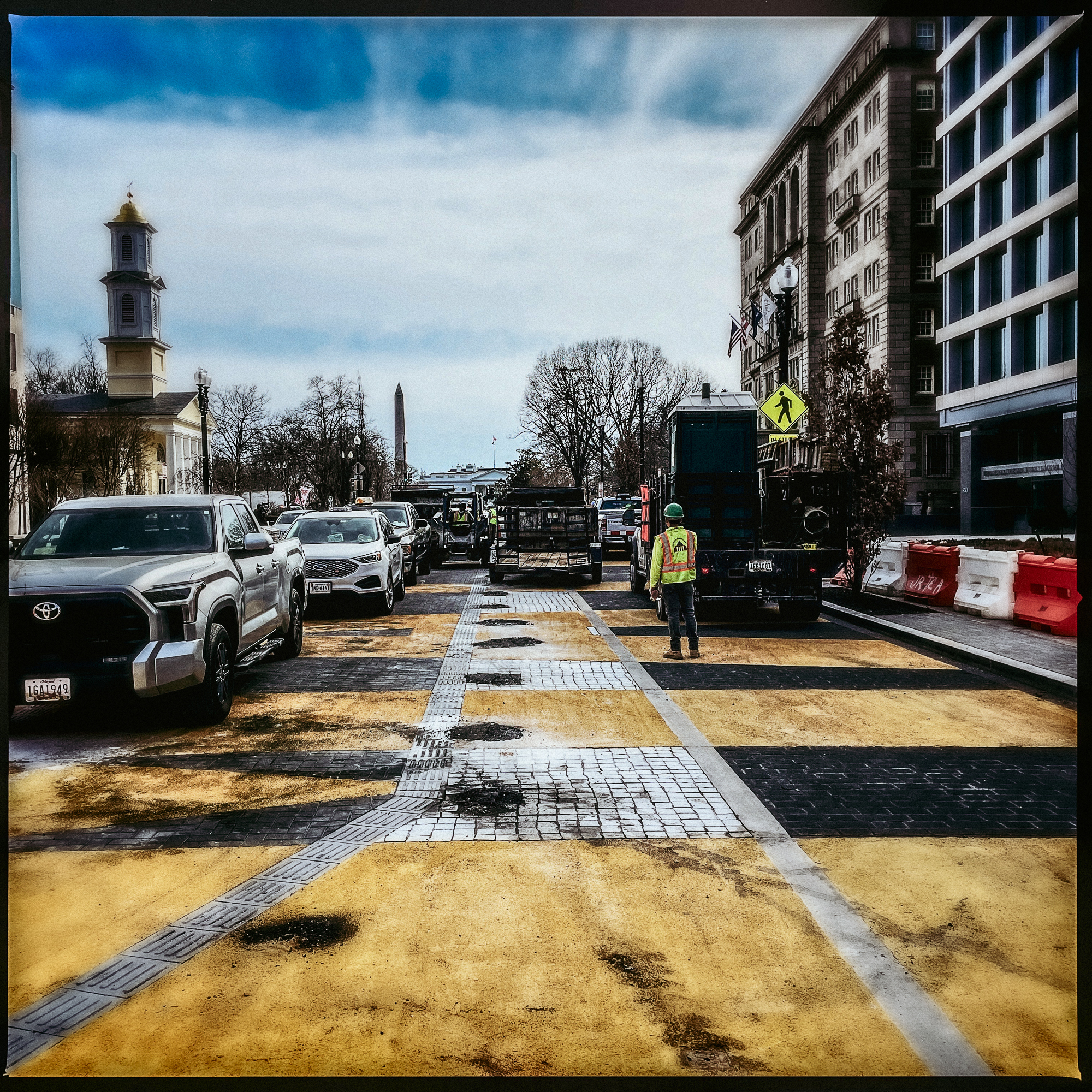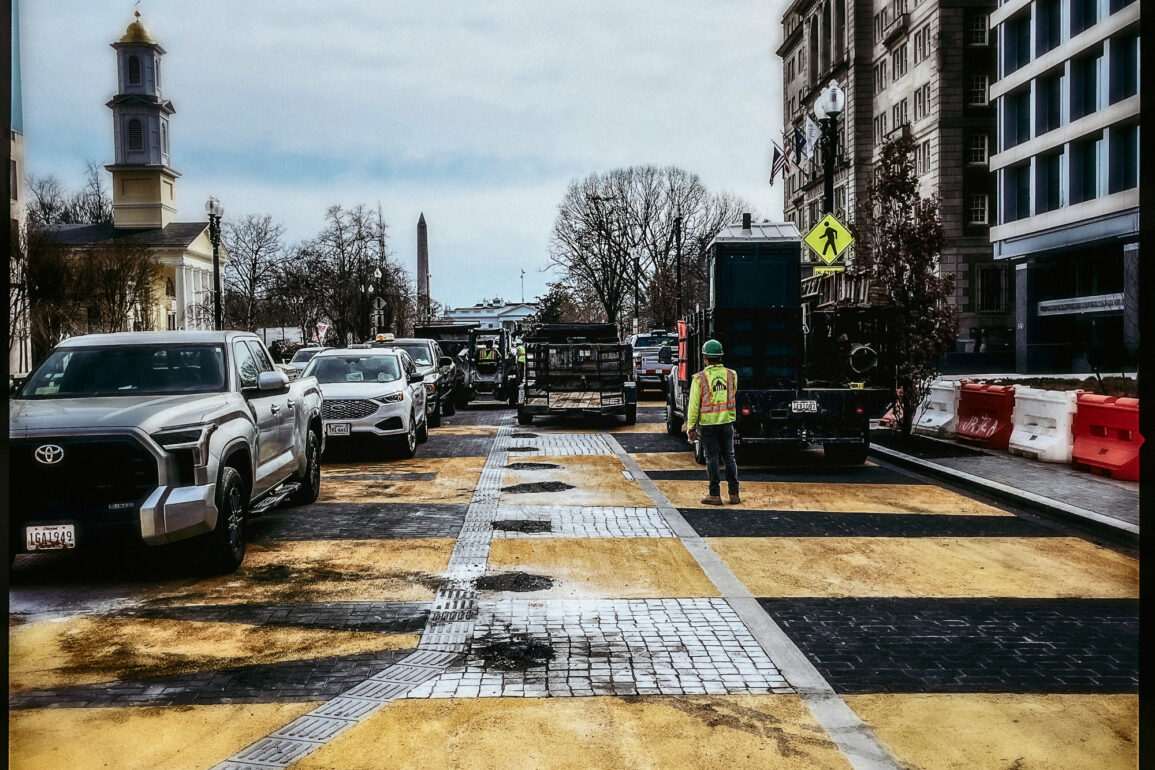
Since I was released from federal prison after 29 years and six months, I have been having a ball. I’m spending the time with my mother that I had longed for. I’m going to all the places and trying all the foods I had fantasized about for years, like going to the National Museum of African American History and Culture and sitting on the grass at the Tidal Basin while enjoying the cherry blossoms. But as I re-acclimate to society, I’m quickly realizing that so many of the changes that I and many others have been fighting for over the past few years are being drastically undermined and rescinded.
One of the first signs of this regression that I noticed after coming home was the decision by Mayor Muriel Bowser to follow President Donald Trump’s directive and tear up Black Lives Matter Plaza. She plans to replace it with a celebration of America’s 250th anniversary—a milestone that should remind us of the decades of oppression of Blacks and Native Americans. The National Park Service also removed references to Harriet Tubman from the Underground Railroad section of its website (a move NPS later reversed after public outcry). These actions are not symbolic. They illustrate just how much disdain this administration has toward people who are not like Trump and the extent to which local elected leaders, law firms, and universities are falling in line without a fight.
This is deeply discouraging. I love this country, and I have pushed hard in the limited ways that I’m able to make it a more fair and equitable place for all (with a huge emphasis on returned citizens and those still incarcerated). But a lot of the support I thought I could count on after being released to establish myself and the nonprofit I co-founded while I was in prison is rapidly disappearing.
One example of the declining support for the work I want to do is the swing back toward heavy-handed policing and tougher sentences in the name of preventing crime, which is exactly how so many of my friends and I spent decades in prison after being locked up as youths. This pendulum swing is reinforcing the stigma attached to returned citizens, which makes it harder for us to successfully re-enter society.
Three years ago, for example, a jury convicted two D.C. police officers in 2022 for their roles in a pursuit that killed a young Black man. The District police chief at the time said the department “supported the independent and thorough review” by federal prosecutors and had “confidence in our judicial system.” The officers, Terence Sutton and Andrew Zabavsky, were eventually sentenced in 2024 to four and five years, respectively, but were pardoned by Trump shortly after he took office in January and are now back on the force. In response, Metropolitan Police Department Chief Pamela Smith thanked Trump, saying that any wrongdoing should be addressed through discipline and training, “not through criminal prosecution.” Bowser backed her.
Another negative aspect of the current climate is the steep decline in support for advocacy work. I am the co-founder of More Than Our Crimes, a nonprofit that advocates for second chances for people convicted of crimes, and that aims to humanize both returned citizens and those still incarcerated. We were once confident that we would get the funding we need to expand on our work in prisons to include returning citizens, but our optimism has waned. We receive news every day of important funders losing federal support. Humanities DC depends on the National Endowment for the Arts for 80 percent of its budget, and that is now gone.
We are at an inflection point. If we don’t collectively act, we will lose decades of progress toward a more equitable society. But I’m not without hope. In fact, this is exactly why I feel we need organizations like More Than Our Crimes and why it is important to understand the power of collective resistance.
A case in point: When the Federal Bureau of Prisons suddenly announced that it was limiting the amount of halfway house time that it would give to returning citizens (some of whom have no family support and have been locked up for decades) from 12 months down to two months, there was a massive outcry from public defenders, advocacy organizations, family members, and prisoners. The policy was rescinded just a week later.
That’s the power of collective resistance. It doesn’t work every time, but when it does, it’s real.
Robert Barton is the co-founder of More Than Our Crimes, a nonprofit focused on carceral reform. At 16, he was charged as an adult with murder and was later sentenced to 30 years to life. He was released in February.
This post was originally published on this site be sure to check out more of their content.















